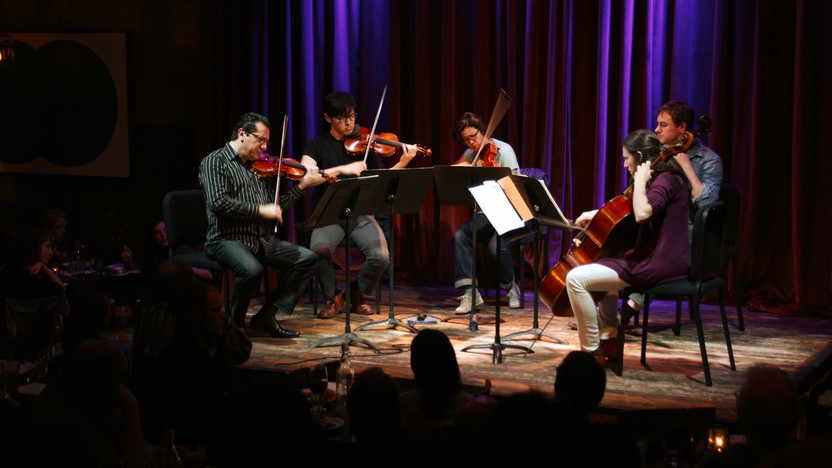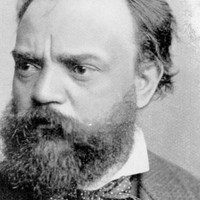SPCO at Icehouse: Dvořák’s American Quartet



In 1891, Antonín Dvořák received an invitation from Jeannette Thurber, President of the newly founded National Conservatory in New York, to come to America. Dvořák had by this time achieved universal renown as the greatest champion of his native Czech music. Meanwhile, America’s nascent classical music community was experiencing an identity crisis. Young American composers studied abroad and came back writing music imitative of Brahms and Wagner. A distinctly American musical language had yet to emerge.
Enter Dvořák. On the strength of his reputation as a great nationalist composer, Dvořák was invited to serve as the National Conservatory’s Artistic Director in the hopes that he would guide America’s composers in discovering their own national language. Dvořák accepted the invitation, came to America, and studiously absorbed all that he heard: African-American spirituals, traditional Native American music, and other American folk styles of the day.
Dvořák and his family spent the summer of 1893 in Spillville, Iowa, a rural town with a large Czech community. The idyllic setting yielded two chamber works that remain among the most beloved in the repertoire: the Opus 96 String Quartet and Opus 97 String Quintet, both nicknamed American.
While a beguiling evocation of the Midwestern countryside may indeed be heard immediately from the first page of the Quartet’s score, the question has fairly been raised as to just how American the work truly is. Reflecting on his immersion in traditional American music, Dvořák ultimately conceded, “I found that the music of the negroes and of the Indians was practically identical, [and that] the music of the two races bore a remarkable similarity to the music of Scotland.” This is surely in reference to the pentatonic scale, a five-note scale characteristic of much of the world’s folk music. The American Quartet’s opening theme, introduced by the viola against a shimmering texture in the violins, dances gleefully around this scale. Likewise does the effervescent clarinet melody in the second movement of Mendelssohn’s Scottish Symphony. The joyful music that begins the scherzo is said to reflect the song of the scarlet tanager, an American songbird that Dvořák observed in Spillville—but the syncopated rhythm also recalls the Czech folk dances that infuse much of Dvořák music. The trio section slows the exuberant dance melody to a plaintive sigh, thus transforming a joyous evocation of his native Bohemia into melancholy nostalgia.
As a critic for The New York Times wrote in 1894, reviewing an early performance of both the Quartet and the Quintet, “Whatever may be the general opinion as to the Americanism of these works, … we may be thankful that Dr. Dvořák came to America if he was able to find inspiration here for such lovely compositions.”
Patrick Castillo ©2016
Doors at 6:00pm | Music at 7:00pm
Ticket price is $20 and includes a drink of choice (tap beers, house wines, rail drinks and rocks cocktails or non-alcoholic house-made beverage). Icehouse's gourmet American cuisine (appetizers, dinner and desserts) will be available for purchase during the performance.
Ticket purchases do not guarantee a table. Please call Icehouse at 612.276.6523 to reserve a table for your party or visit icehousempls.com/reservations.
Please note: Individual tickets for this concert are not available at this time. A limited number of subscription tickets for the three-concert SPCO at Icehouse series can be purchased at thespco.org/icehouse or by calling our Ticket Office at 651.291.1144.
Get driving directions and find nearby parking.
Find dining options close to the venue.
View seating charts to find out where you'll be seating.
SPCO concerts are made possible by audience contributions.
For exclusive discounts, behind-the-scenes info, and more:
Sign up for our email club!
